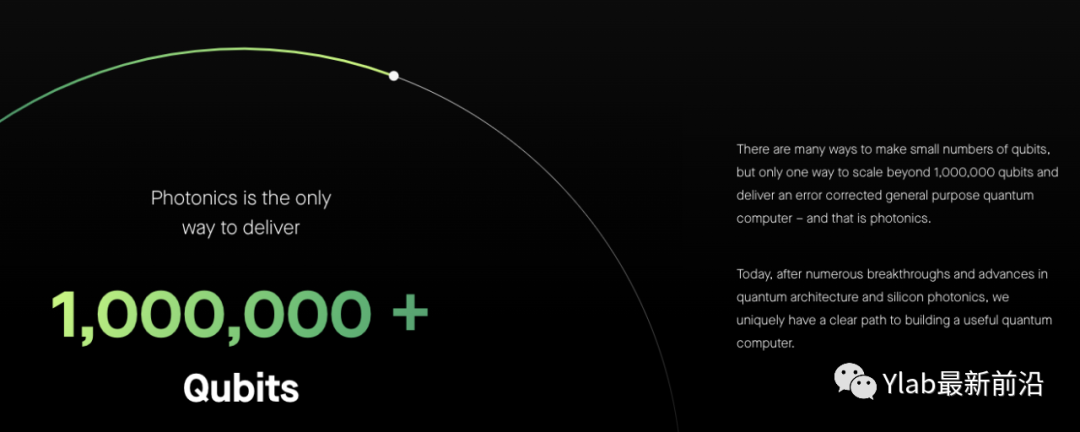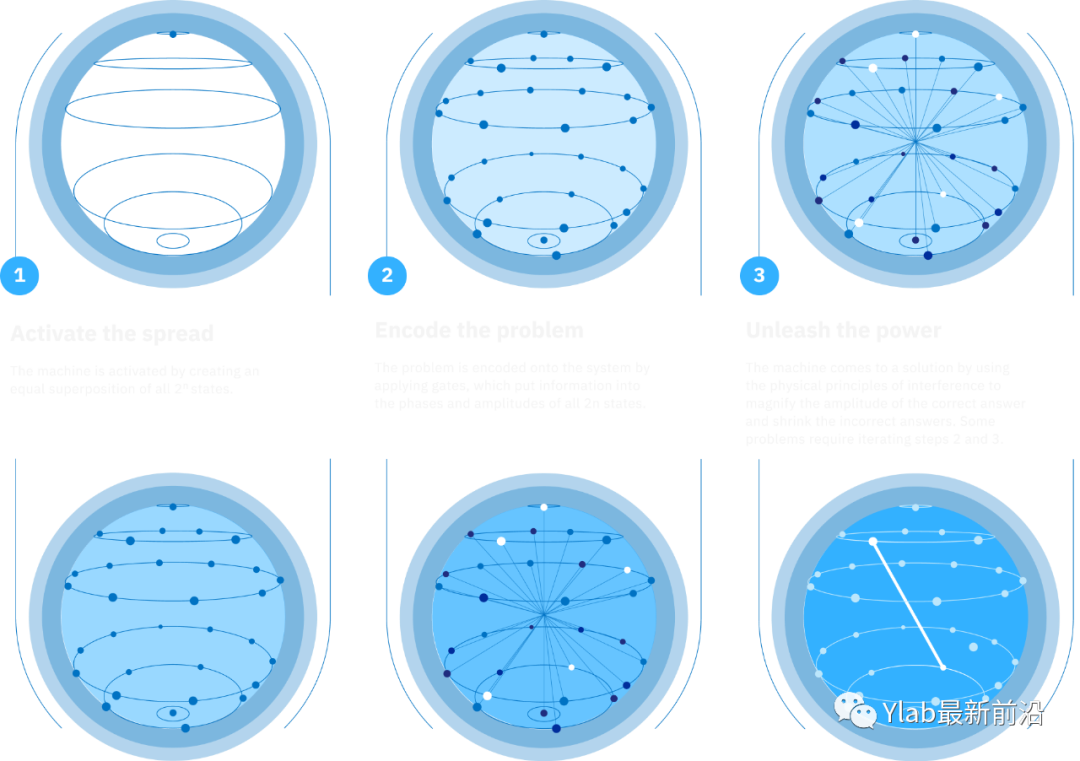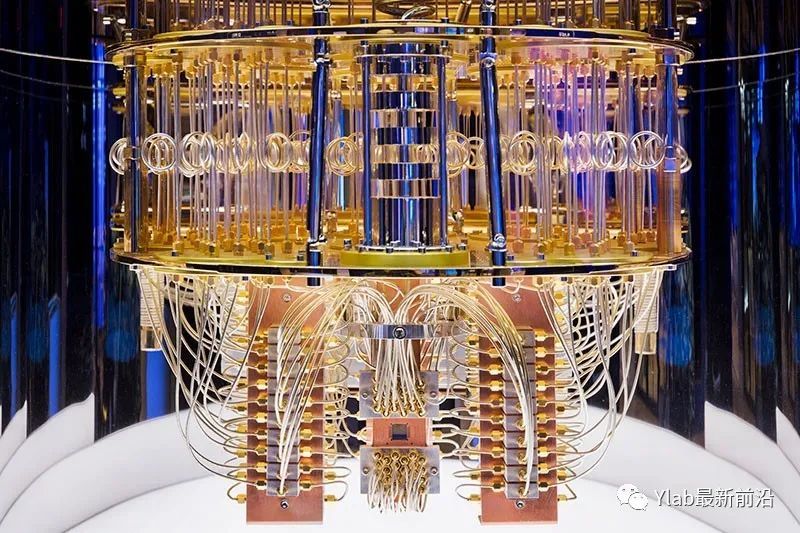
河北-->天津 --> 西安-->香港-->英国 大学教书,偶尔写作,愿意思考,诚心分享。
Fiery quantum computing, followed by calculation of geometry?
Last week, British Prime Minister Boris proposed that the UK should vigorously develop quantum computing, build general-purpose quantum computers, and ensure that the UK will occupy 50% of the global quantum computing market by 2040. It is estimated that the recent technological breakthrough and record financing of quantum computing have stimulated the political elite of this Eton College graduate.

On November 15, IBM announced that its latest quantum computing chip "Eagle" achieved 127 qubits, pushing quantum computing devices to triple digits for the first time. IBM aims to achieve a 433-bit quantum processor next year, and then a 1121-qubit processor in 2023 [1]. The "Eagle" chip is the first step in its goal.
QuEraComputing, a startup founded by physicists at Harvard and MIT, recently announced that it has built a record-breaking 256-bit quantum computer. Within two years, the company expects to achieve more than 1,000 qubits.
The other is Atom Computing, which announced in July that it had completed a $15 million Series A financing and developed a 100-qubit machine code-named "Phoenix" based on its neutral atom technology.
PsiQuantum, founded by former employees of the University of Bristol, aims to achieve 1 million qubits using photonic integration technology. So far, the company has raised more than $400 million in financing.

Other companies, including Google and Honeywell, have similarly ambitious plans for quantum computing.
I have always kept a distance from quantum computing, and sat down to talk about quantum computing today.
Principles of Quantum Computing
Quantum computing, which uses quantum mechanics to solve specific problems, will achieve a quantum leap in computing. Quantum computers are designed to solve very complex problems that current state-of-the-art supercomputers cannot, and will never solve.
With the development of integrated circuit technology, the performance of today's supercomputers is very powerful, but although some problems are simple at first glance, they are problems that supercomputers are not good at solving, or are unable to solve. For example, a meal seating arrangement. Assuming that there is only one optimal sitting method, there are 120 possibilities for the seating problem of 5 people. When the number of people grows to 10, the probability of seating increases to 3,628,800 times (10!), more than 3 million. If Liangshan Shuibo 108 will be seated, the probability will increase to 1.324642e+174 possibilities. For such a problem, a supercomputer needs a very large working memory to store all the possibilities, then analyze each combination and find the optimal combination. This is beyond the capabilities of supercomputers. This is just a simple example, there are many problems in real life that supercomputers are not good at or can't solve. For example, a courier company delivers things to 50 cities and needs to find an optimal path to save on fuel costs; an investment company wants to hedge portfolio risk; a pharmaceutical company wants to simulate molecules to better understand pharmacological responses. These optimization problems have nearly infinite combination spaces, and the optimal solutions are often very few or even unique. These optimization problems are not what supercomputers are good at, and they are also problems to be solved by quantum computing.
In traditional computers, the storage in memory is deterministic data, and each bit has only two deterministic states, 0 or 1. Unlike an electronic bit, a qubit can take on two values or states at the same time. Therefore, quantum computers can create ultra-high-dimensional spaces based on qubits, so that these complex problems with huge state spaces can be expressed. Another huge advantage of quantum computers is that each computational step affects all existing states simultaneously. Therefore, one qubit can perform multiple computations at the same time, and due to this particularity, the result is an outstanding computational performance that can grow exponentially. Algorithms based on quantum wave interference can find optimal solutions in this ultra-high latitude space and convert them into a form that we can use and understand. The triumph of quantum computers is attributed to two key principles of quantum physics: quantum entanglement and superposition.
The diagram below shows the quantum computing process.

Step 1: The machine is activated and the 2^n states are superimposed evenly. N-bit qubits are stacked together to create high-dimensional space. These qubits behave randomly with each other, but are correlated, known as quantum entanglement. In the second step, using gates, the problem to be solved is encoded onto the phase and magnitude of the 2^n states. Step 3: Based on the principle of physical quantum interference, the amplitude of the correct or optimal solution is amplified to converge to the optimal solution.
One of the quantum algorithms using these techniques, called Grover search, seems to be the most promising right now. Suppose you need to find an item from a list of N items. On a classic computer, on average you have N/2 items to check, and in the worst case you need to check all N items. Use Grover's search on a quantum computer and you'll find this item after checking about √N items. This represents a significant increase in processing efficiency and time savings. For example, if you want to find an item in a 1 trillion list, and each item takes 1 microsecond to check. A conventional computer takes 1 week, while a quantum computer takes only 1 second.
This is the enormous potential of quantum computing.
Below is a picture of the IBM quantum computer.

Quantum Superiority/Quantum Supremacy
Quantum superiority is when a quantum computer does something that a classical computer simply cannot reasonably do. Nature reports Google's claim that its 54Bit quantum computer has achieved quantum superiority. It completes the QC task (a specific random number generation) in 200 seconds, which would take 10,000 years on a supercomputer [2]. The article states:
In reaching this milestone, we show that quantum acceleration is achievable in real-world systems and is not ruled out by any hidden laws of physics. Quantum supremacy also heralds the era of Noise Mesoscale Quantum (NISQ) technology. The benchmark tasks we show have immediate applications in generating certifiable random numbers; other preliminary uses of this new computing power may include optimization, machine learning, materials science, and chemistry. However, realizing the full promise of quantum computing, such as Shore's factoring algorithm, still requires technological leaps to design fault-tolerant logical qubits.
Although we have seen recent breakthroughs in quantum technology, the practicality of quantum technology is still far away. Current technical routes that may be used for quantum technology include:
- Superconducting quantum computing (qubits realized by states of small superconducting circuits (Josephson junctions))
- trapped ion quantum computer (qubits implemented by the internal state of trapped ions)
- Neutral atoms in an optical array (qubits implemented by the internal states of neutral atoms trapped in an optical array.
- Quantum dot computers, spin-based (e.g. Loss-DiVincenzo quantum computers) (qubits given by the spin state of a trapped electron).
- Space-based quantum dot computers (qubits given by the positions of electrons in a double quantum dot).
- Nuclear Magnetic Resonance Quantum Computers (NMRQC) are implemented using NMR of molecules in solution, where qubits are provided by the nuclear spins within the dissolved molecules and probed with radio waves
- Solid-state NMR Kane quantum computer (qubits realized from the nuclear spin states of phosphorus donors in silicon)
- Electron quantum computers on helium (qubits are electron spins).
- Diamond-based quantum computers (qubits realized by electrons or nuclear spins at nitrogen hole centers in diamonds)
- Quantum computers based on Bose-Einstein condensates.
- Quantum Computer Based on Transistor--String Quantum Computer Using Electrostatic Traps to Entrain Positive Holes
- Quantum computers based on inorganic crystals doped with rare-earth metal ions (qubits are realized through the internal electronic states of the dopants in the fiber).
- Quantum computers based on metalloid carbon nanospheres.
Quantum computing is hot, is it useful? My take on quantum computing technology
Human society relies on imagination, fictional stories to achieve large-scale collaboration. These fictional stories, like human dreams, can bring more people together, thereby promoting human progress. Looking at many events in history, such as the moon landing program, with the purpose of breaking through the human living space, most people in the world have been united. It may be difficult for people today to imagine the mood when people saw the moon landing on TV, but they must remember the classic quote of American astronaut Armstrong: "This is one small step for me, but one giant leap for mankind. step."
At this point in time today, after a plague like Covid19, which has taken a heavy toll on mankind and completely changed the lives of many people, mankind needs a common story to avoid conflict and reunite mankind. Quantum computing may be difficult to reach a consensus like the moon landing plan, but it is also a peak that human beings have not yet reached. At present, major countries and enterprises in the world are investing heavily in quantum computing, which can be regarded as a direction with high participation. The dream of quantum computing, after the trauma of human beings, also brings solace to human beings and brings new hope. This may help people out of the shadow of the new crown. Humanity will always move forward, and perhaps quantum computing is a possible option.
On the other hand, the realization of quantum computing still faces many key technical challenges. In the current quantum computing solutions, they are all at the smaller scale of atoms, photons, etc., to explore the unknown of human beings. Being able to absorb social funds and invest in such a promising global project, even if it is difficult to achieve the expected goal in a short period of time, will certainly promote technological innovation at the micro- and nano-scale, and may produce many benefits that are beneficial to human beings. The technological output of development.
From this point of view, whether quantum computing is useful or not should not be an issue that needs to be discussed now. But the realization process of quantum computing must be meaningful and very valuable. I hope that after the epidemic, we can reunite under the dream of quantum computing and return to the era of globalization of mutual cooperation and exchange.
Reference
[1] https://www.nature.com/articles/d41586-021-03476-5
[2] https://www.nature.com/articles/d41586-019-03213-z
Like my work?
Don't forget to support or like, so I know you are with me..
Comment…